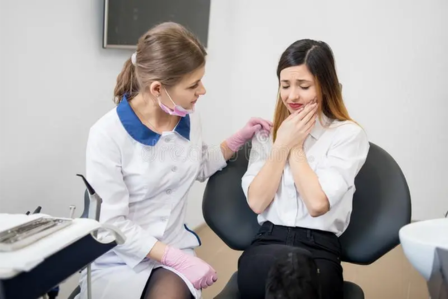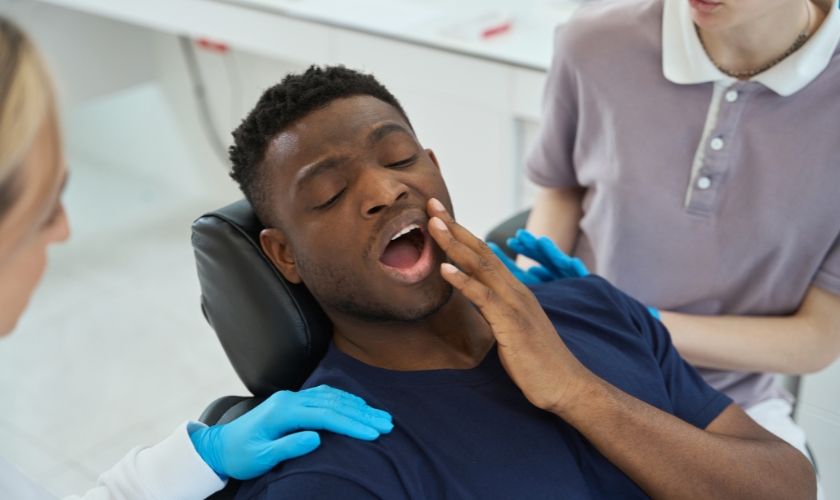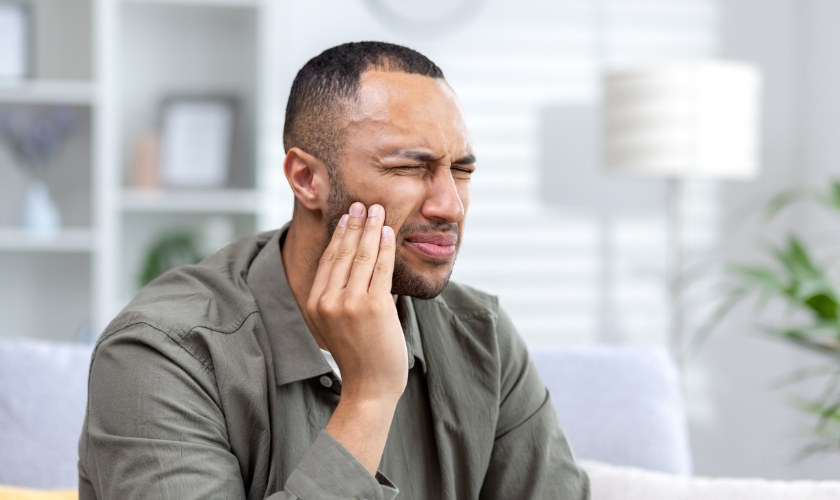
Dental emergencies can strike at the most unexpected times. Whether it’s a sudden toothache or a sports-related injury, the pain and panic can be overwhelming.
But what if many of these emergencies can be avoided? By taking proactive steps, you can keep your smile healthy and vibrant, minimizing the chances of a dental crisis.
In this blog, we’ll explore practical tips for preventing dental emergencies. You’ll learn about the importance of a solid oral hygiene routine, dietary choices, and protective gear during sports. We’ll also discuss how recognizing early signs of trouble can save you from more significant issues down the line.
Ready to arm yourself with knowledge? Let’s dive into how you can safeguard your teeth and gums, ensuring they stay strong and healthy for years to come!
Establish a Regular Dental Care Routine
Maintaining a consistent dental care routine is crucial for preventing dental emergencies. Regular check-ups and cleanings help identify potential issues before they escalate. Here’s how to build a reliable schedule:
- Set Reminders: Use a calendar or app to schedule dental appointments every six months. Consistency is key!
- Communicate with Your Dentist: Discuss your oral health and any changes in your routine with your dentist. Open communication ensures tailored advice.
- Emphasize Professional Cleanings: Regular cleanings remove plaque and tartar buildup, which can lead to cavities and gum disease. This preventative measure is essential for dental emergency prevention.
By prioritizing routine care, you’ll catch issues early and save yourself from the stress of emergency visits. A little effort in scheduling can go a long way in maintaining your dental health!
Maintain Good Oral Hygiene Practices
Good oral hygiene practices form the foundation of a healthy mouth. Daily brushing and flossing are non-negotiable. Here’s how to enhance your routine:
- Brush Twice Daily: Use fluoride toothpaste and a soft-bristled toothbrush. Aim for two minutes each time to ensure thorough cleaning.
- Floss Daily: Flossing removes food particles and plaque from between your teeth. It’s just as important as brushing.
- Use Effective Products: Consider mouthwash and inter-dental brushes for added protection. They can help reduce bacteria and keep your breath fresh.
Incorporating these practices into your daily life not only keeps your mouth clean but also significantly reduces the risk of dental emergencies. If you ever encounter a sudden issue, knowing you have good hygiene practices will give you peace of mind.
Watch Your Diet
Your diet plays a significant role in your dental health. Certain foods can wreak havoc on your teeth, while others can strengthen them. Here’s how to make tooth-friendly choices:
- Limit Sugary Foods and Drinks: Sugar fuels harmful bacteria that cause cavities. Reduce your intake of sodas, candies, and pastries.
- Choose Tooth-Friendly Snacks: Opt for crunchy fruits and vegetables like apples and carrots. These foods help clean your teeth naturally while providing essential nutrients.
- Practice Moderation: Balance is crucial. Indulge occasionally, but ensure that your primary diet consists of healthy options.
Protect Your Teeth During Activities
Injuries during sports and high-risk activities can lead to severe dental emergencies. Protecting your teeth is essential. Here’s how:
- Wear a Mouthguard: Whether you’re playing soccer, basketball, or any contact sport, a mouthguard can absorb impact and shield your teeth from damage. Custom-fitted mouthguards offer the best protection.
- Avoid Dangerous Moves: Educate yourself on safe sports techniques. For example, don’t use your teeth to open bottles or packages.
- Know How to Respond: If an injury occurs, stay calm. Rinse your mouth gently and apply a cold compress to reduce swelling. Seek help from an emergency dentist near Augusta as soon as possible.
Be Mindful of Habits That Harm Teeth
Some habits can be surprisingly damaging to your dental health. Here are common ones and strategies to avoid them:
- Nail-Biting: This can chip your teeth and introduce bacteria into your mouth. Try stress-relief techniques or keep your nails trimmed.
- Teeth Grinding (Bruxism): Grinding can wear down teeth and cause pain. Consult your dentist about a nightguard to protect your teeth while you sleep.
- Awareness is Key: Recognize when you engage in these harmful behaviors. Keeping a journal may help track your habits and find triggers.
Recognize Early Signs of Trouble
Being aware of early warning signs can save you from serious dental emergencies. Here’s what to look for:
- Persistent Toothache: Don’t ignore ongoing pain. It could indicate an underlying issue like a cavity or infection.
- Gum Changes: Swollen, bleeding gums are red flags. Seek dental advice to prevent gum disease.
- Sensitivity to Hot or Cold: Increased sensitivity can signal decay or other dental problems. Early intervention is crucial.
If you notice these symptoms, contact your dentist promptly. Timely care can prevent complications and costly treatments down the line.
Educate Yourself and Your Family
Knowledge is a powerful tool in dental health. Educating yourself and your family about oral hygiene can lead to better prevention. Here’s how to get started:
- Utilize Resources: Books, websites, and videos can provide valuable insights into dental care. Look for reputable sources like the American Dental Association.
- Discuss Dental Health: Hold family meetings to talk about oral hygiene. Encourage children to ask questions and understand the importance of caring for their teeth.
- Make It Fun: Turn learning into a game or competition. This approach keeps everyone engaged and motivated.
Being Prepared For Dental Emergencies
Even with the best prevention efforts, emergencies can still happen. Being prepared makes all the difference. Here’s how to set yourself up for success:
- Create a Dental Emergency Kit: Include items like gauze, a cold pack, pain relievers, and a list of emergency contacts, including your emergency dentist Augusta.
- Know Emergency Procedures: Familiarize yourself with first aid steps for common dental emergencies. Practice what to do if a tooth gets knocked out or you experience severe pain.
- Research Local Emergency Dentists: Keep a list of emergency dental services in your area. Knowing where to go can save valuable time during an emergency.
Preventing dental emergencies doesn’t have to be daunting. By implementing these tips, you can safeguard your smile and enjoy a healthier mouth. Remember, regular check-ups and good oral hygiene practices go a long way. If you ever find yourself facing a dental issue, don’t hesitate to contact us at Newton Dental Studio for prompt and professional care. Your dental health deserves the best attention!



